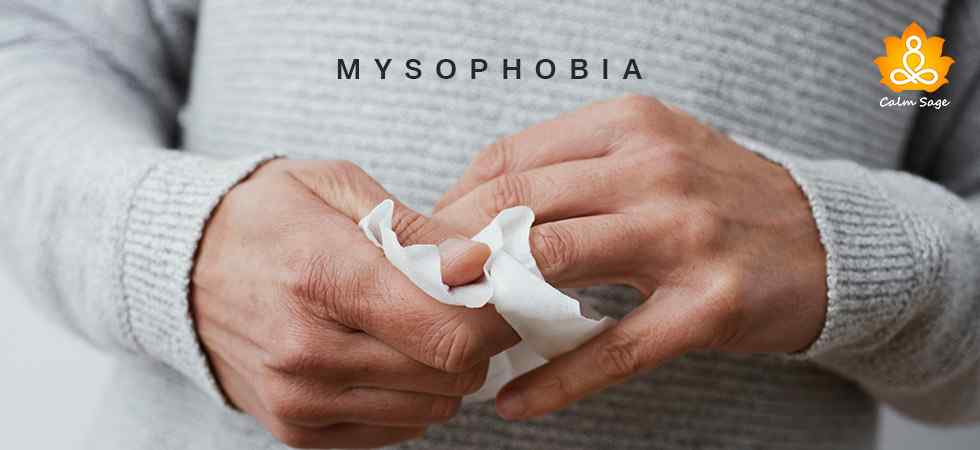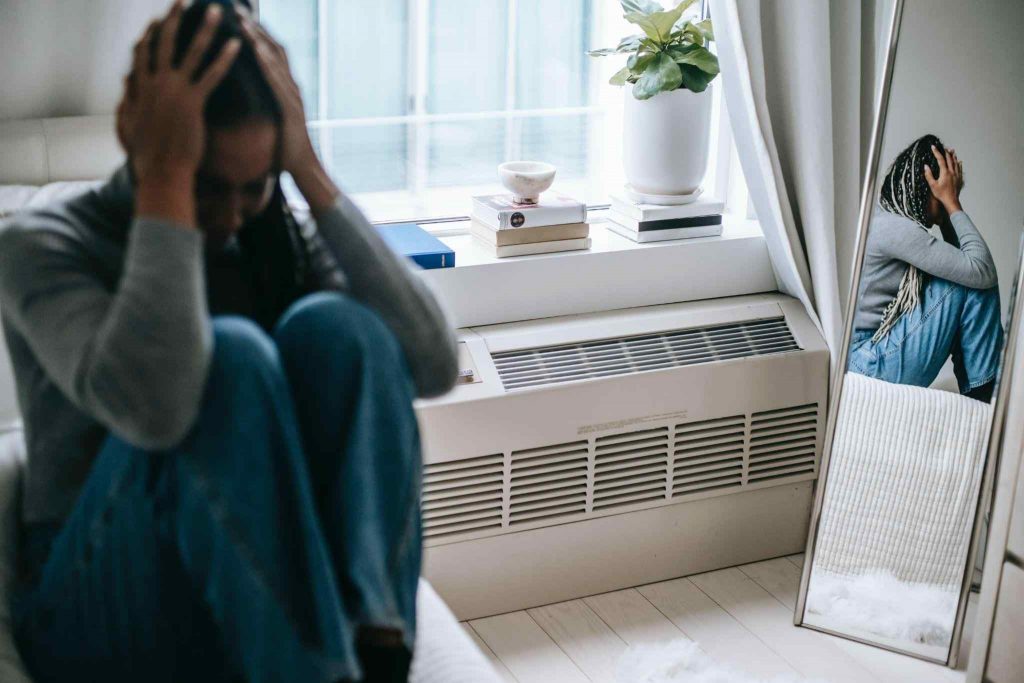Mysophobia: All You Need To Know About The Fear Of Dirt, Contamination, Or Germs

With the global pandemic in the mix, we’ve learned and adapted to be mindful of the viruses, bacteria, and germs in the environment but being cautious about the dirt and germs isn’t as same as having an extreme or irrational fear of dirt, contamination, or germs.
When you struggle with the fear of germs, dirt, or contamination – also known as mysophobia, it can cause you to go out of your way to avoid or stay away from germs or dirt – regardless of their threat level.
In this article, let’s take a look at what mysophobia means, the symptoms of mysophobia, the causes, what’s the difference between mysophobia and OCD, and how it can be treated.
What Does Mysophobia Mean?

Mysophobia or more commonly referred to as germophobia is an intense yet irrational fear of dirt, germs, and contamination including sickness. Mysophobia can be clinically specified under specific phobia in the DSM-5.
Anyone struggling with mysophobia can experience significant distress and can face trouble in the areas of daily functions, including social or professional lives.
While the phobia of dirt or contamination can be often linked with obsessive-compulsive disorder (OCD), people who don’t have OCD can also struggle with mysophobia. Mysophobia is a common phobia and can affect anyone, regardless of their age or conditions.
What Are The Symptoms Of Mysophobia?
Mysophobia symptoms can look a lot like this:
- Having an intense fear of germs or dirt
- Experiencing anxiety at the thought of exposure to dirt or germs
- Actively avoiding people, situations, places, or objects that may be contaminated with dirt or germs
- Having compulsive or obsessive cleanliness behaviors
- Experiencing physical signs of anxiety or panic
- Experiencing rapid breathing, sweating, crying
- Having meltdowns or screaming
There is no setlist of actions that can conclude a person has mysophobia. How germs or dirt manifests in one’s life can be different and can contribute a lot to the list of behaviors that suggest mysophobia.
Some examples of mysophobia can be; When you believe that germ contact may have occurred while shaking hands with someone or touching a doorknob. People with mysophobia may take multiple showers each day, carry hand sanitizer frequently, and may be reluctant to use public washrooms, share food with others, etc.
What Are The Causes Of Mysophobia?
While the exact cause of the fear is unknown, experts believe that such behavior begins manifesting during childhood and can be associated with anxiety disorders, mood disorders, or substance use disorders. Some factors that are believed to contribute to the development of mysophobia can include:
- Traumatic childhood experiences
- Genetics
- Environmental factors
- Having a family member with the phobia
To be diagnosed with mysophobia, you may need professional help. A therapist can help you with the diagnosis or causes of mysophobia via a talk session where they might ask you:
- Evaluate your fear
- The level of distress it causes in your life
- The possibility of a co-occurring disorder, such as OCD
The Difference Between Mysophobia And OCD
Mysophobia can be more often than not associated with an obsessive-compulsive disorder or OCD as the two involve similar compulsive and obsessive behaviors. While mysophobia and OCD can co-occur, they are not to be mistaken as the same.
Mysophobia can be defined as having an intense and irrational fear of germs and dirt and can occur with other mental health conditions or phobias. OCD, on the other hand, is a separate mental health disorder wherein a person feels almost compelled to perform a repetitive action as a response to intrusive thoughts.
Compulsions carried under OCD can be anything, for example, turning a lock three times over, switching the light off and on three times, etc. While many OCD compulsions can involve cleaning a surface clean of dirt or germs, the motivation behind the action is not always the fear of contamination. The same goes with regularly sanitizing your hands.
OCD compulsions are more ritualistic and can occur predictably, however, for mysophobia, the fear itself is the driving force that motivates you to act on your compulsions.
For example, under OCD, sanitizing a surface may mean the need to keep the surface clean but under mysophobia, excessive sanitization may be out of the fear of contracting germs.
How Can Mysophobia Be Treated?

Mysophobia treatment is the same as the treatment for other specific phobias. A professional mental healthcare provider can recommend a combination of psychotherapy and medication based on the intensity of the fear. Psychotherapy approaches that can help in mysophobia treatment can include:
- Cognitive-behavioral therapy (CBT)
- Exposure therapy
- Family therapy
- Biofeedback therapy
- Stress management
Other than these above approaches, you can also try some self-help strategies such as:
- Questioning your fear and rationalizing your thinking
- Taking small steps in facing your fears
- Practicing relaxation techniques to reduce anxiety and panic
- Treating yourself when you overcome one barrier
- Asking your support system for encouragement
- Join online support groups or chat forums to learn more about mysophobia and other healthy coping skills
Wrap Up
Mysophobia, also known as germophobia, bacillophobia, bacteriophobia, or verminophobia – is an intense and irrational fear of dirt, germs, or contamination. People with mysophobia can experience severe distress when surrounded by places, situations, possessions, or people that may spread dirt or germs.
It’s good to be wary of germs, dirt, and contamination these days but when the fear of germs or dirt begins to affect your daily life including personal, professional, and social life, then it is recommended that you seek professional support.
Keep in mind that other mental health disorders such as OCD can also be an underlying factor in your mysophobia. Getting professional support can help understand the real cause and find the right treatment.
I hope this article helped you understand mysophobia, the fear of dirt, contamination, or germs. For professional support, you can connect with BetterHelp by clicking on the link below or DM us on social media.
BetterHelp link
Let us know what you think about this article in the comments below or by dropping us an email at info@calmsage.com.
Take Care, and Stay Safe!




















